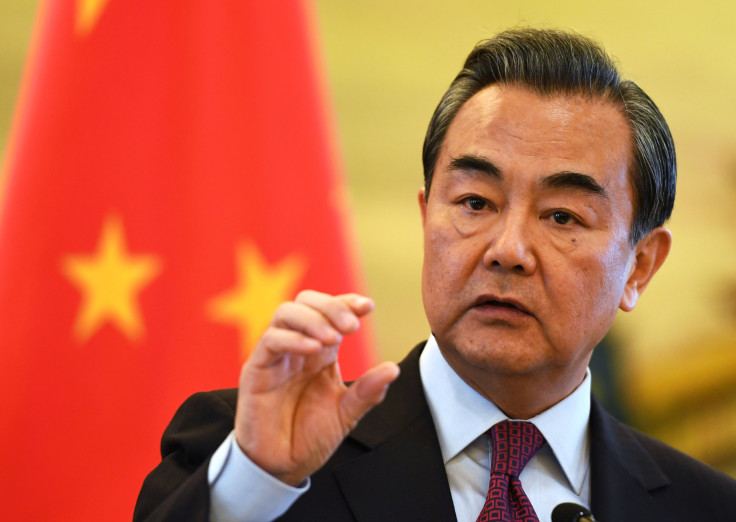South China Sea Conflict Latest Update: US Needs ‘History Lesson,’ On World War II, China’s Foreign Minister Says

China says the United States needs a history lesson when it comes to the South China Sea. Speaking in Australia Tuesday, Chinese Foreign Minister Wang Yi cited agreements made during World War II that handed the hotly contested waterway back to China from Japan, Reuters reported.
"Brush up on the history of World War II," Wang was quoted saying during his visit to Canberra, Australia. The shot across the U.S.’ figurative bow is just the latest attack in a war of words between the two nations over China’s claim to the South China Sea, which includes several systems of islands and man-made military installations.
Secretary of Defense Jim Mattis said last week diplomacy is the best route to resolve the dispute over the South China Sea, one of the most important waterways for trade in the world and smack in the middle of South East Asia. But Wang's comments are viewed to be a response to new Secretary of State Rex Tillerson’s statements during his confirmation hearing last month when he said China should not be installing new islands, as well as President Donald Trump’s tough talk over China’s economy and its handling of North Korea.
Wang specifically cited the 1943 Cairo Declaration and the 1045 Potsdam Declaration as the main basis of China’s argument. The declarations called for Japan to return to China all of its taken territories during the war, a massive swath of land that including much of the mainland and islands in the South China Sea. He also used the Nansha Island’s, China’s name for the Spratly Islands, as an example.
"In 1946, the then-Chinese government with help from the United States openly and in accordance with the law took back the Nansha Islands and reefs that Japan had occupied, and resumed exercising sovereignty," Wang said. "Afterwards, certain countries around China used illegal methods to occupy some of the Nansha islands and reefs, and it's this that created the so-called South China Sea dispute."
The U.S., most notably Trump, has faced much recent criticism from China over a variety of issues. Most recently, China’s top judge called Trump an enemy “of the rule of law” in a blog post after the president blasted a U.S. federal judge for placing a restraining order on a travel ban that stopped immigration from seven predominantly Muslim countries, according to the Associated Press.
© Copyright IBTimes 2025. All rights reserved.





















